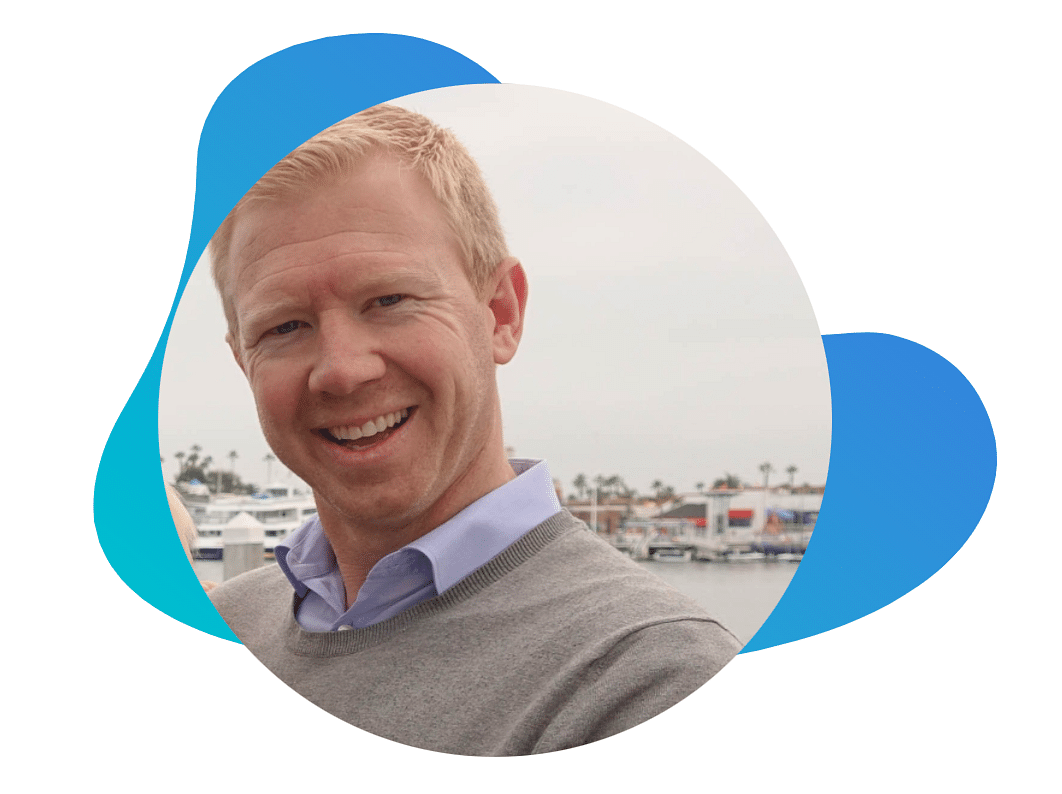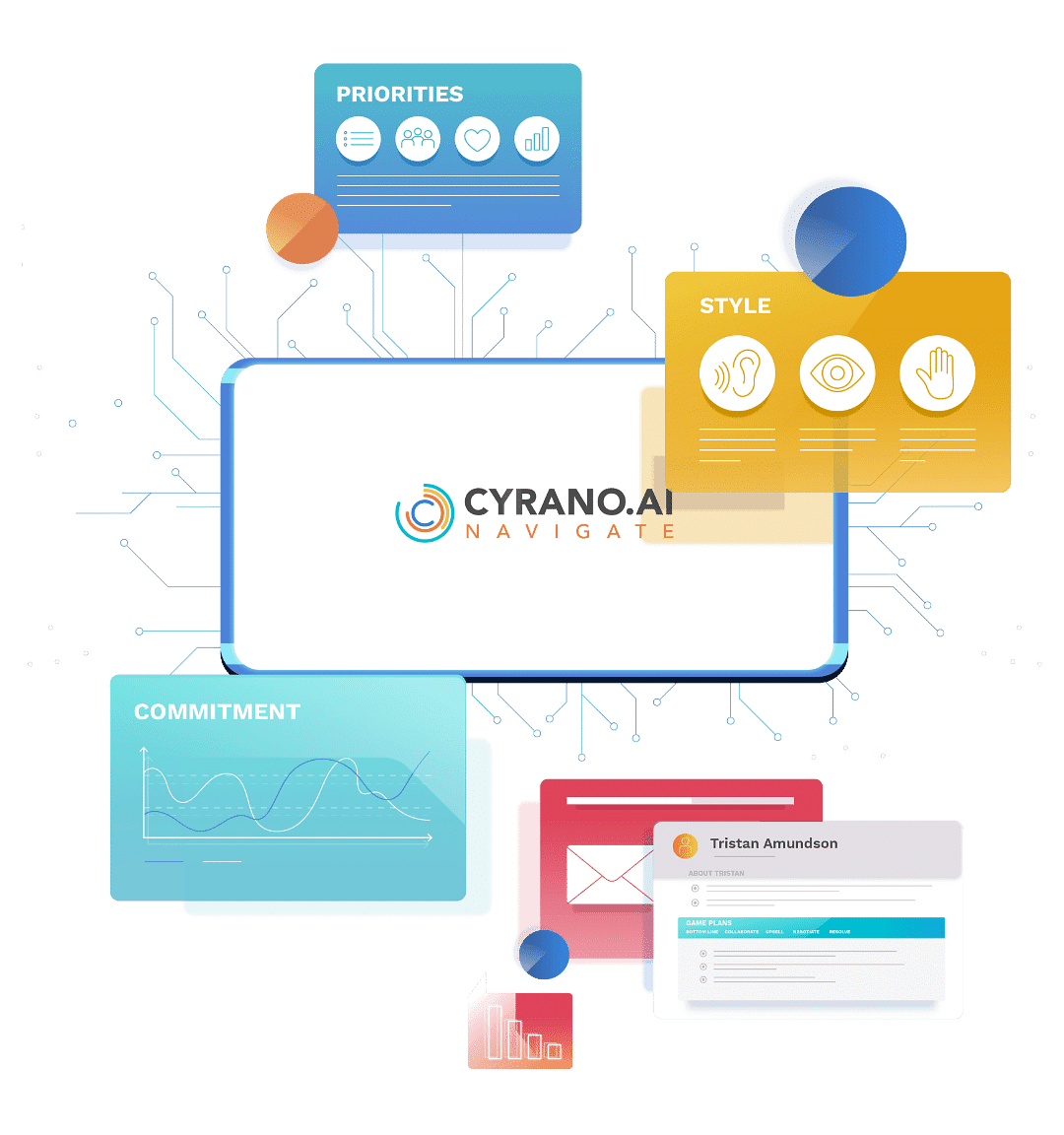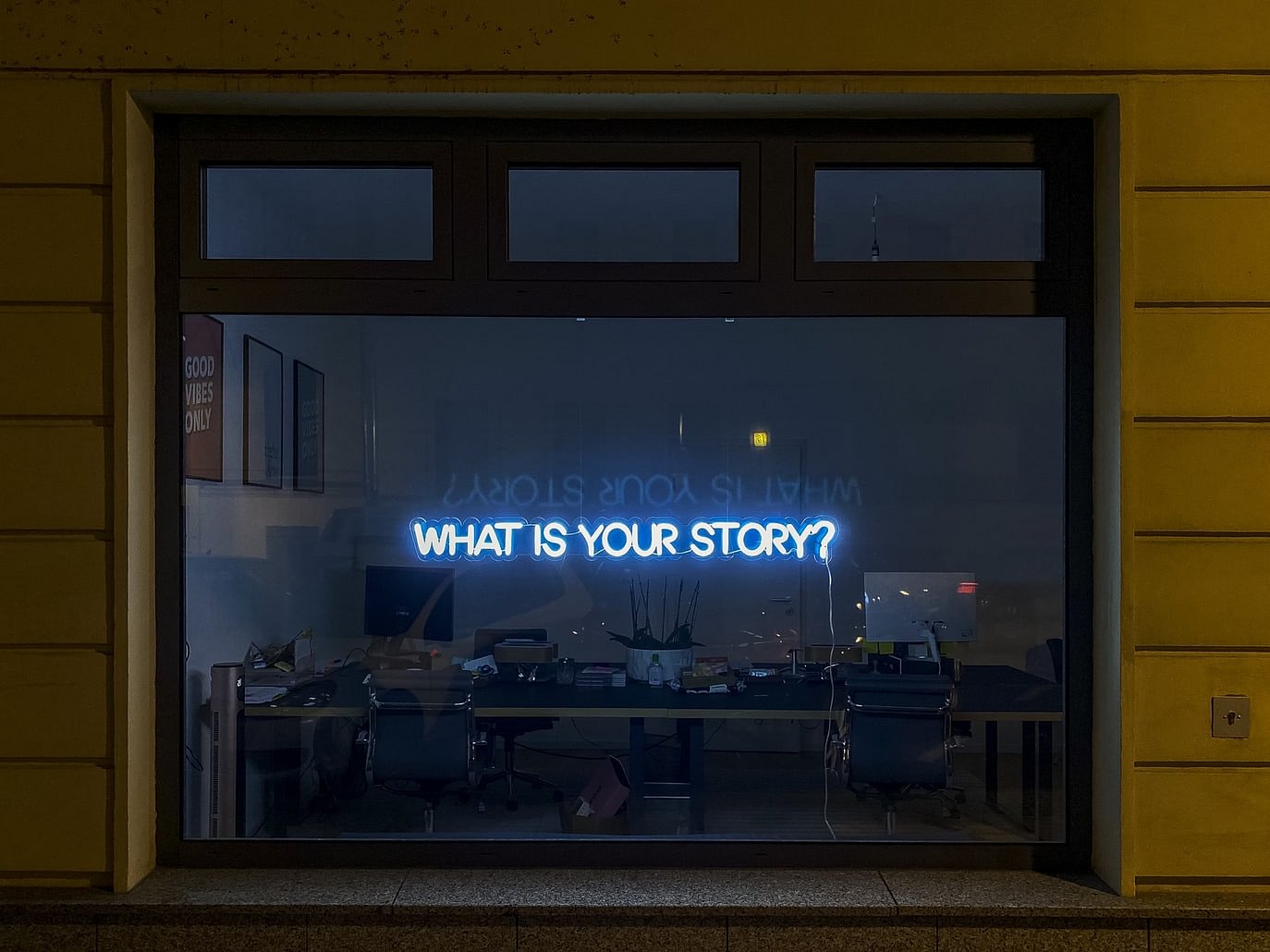
Cyrano’s AI software will help you make your customers fall in love with you
By Jim James, Founder EASTWEST PR and Host of The UnNoticed Entrepreneur.
Scott Sandland has a company called Cyrano.ai. Hailing from California, he joined the latest episode of The UnNoticed Entrepreneur and talked about how they use Artificial Intelligence (AI) to help businesses understand people better.

Image from Cyrano’s website
The name of his company comes from the play titled Cyrano de Bergerac. The story revolves around an eponymous guy who writes effectively. He uses his skill to tell another guy what he has to say to make a girl fall in love with him. In movies and television shows, there’s a cliched scene where there’s a person telling somebody what to say through an in-ear radio receiver. That cliche’s original version is Cyrano de Bergerac.
Cyrano, their company, is built on that idea. Their AI analyses people and gives information to you as their client. The goal is to help you make your customers fall in love with you. They will tell you what matters most to your audience so you can better engage and have a more satisfying relationship with them.
Why Analyse Words
Cyrano’s AI uses linguistic analysis. Scott believes that words in speech are defining the behaviour of people. If peacocks have feathers and deers have antlers, humans have words. They are simply our most defining quality. The reason that we run the planet is that we can effectively communicate with one another.
He further looks at it from a behaviouristic standpoint: The more you understand the way a person talks, the more you can understand the way a person thinks or approaches anything. And no matter what a person is talking about, they’re likely to tell you about themselves and their priorities.

Image from Unsplash
This is why they designed their AI tool to analyse words, which can be spoken or relayed through whatever platform — from Zoom calls to text messages. They think of words as the fingerprint of a person that enables them to deeply know about that person. They then transmit that information to the person on the other side of the conversation (i.e. their customers).
Scott has an academic and medical background in psychology. He’s a clinical hypnotherapist and the Chief Executive Officer (CEO) of a mental health clinic. Cyrano’s co-founder, on the other hand, is a sociologist and a neuro-linguist.
Cyrano’s AI vs Sentimental Analysis
For Scott, sentimental analysis is a fascinating thing and is really about having a fifth-grade reading level. And a lot of multimillion-dollar companies are focusing their efforts on trusting that fifth-grader’s advice.
The scenario when using sentimental analysis goes like this: After a call is over, the tool will tag the call as “not good.” Then, it will make you wonder why it’s not good. But when you ask about it, it wouldn’t be able to give an answer.
What Cyrano does, on the other hand, is real-time. After the call, they can already put together a report that shows graphs indicating at which point your customer is highly committed, curious, or open-minded. They also highlight the part where the need-versus-want comes in, where they’re being irrational, and where they’re being logical.

Image from Cyrano’s website
They also have icons to show the priorities of the caller in a ranked order. For example, they can show you if the person is highly focused on facts and data than their ego, or if they’re more focused on the relationships of the community.
Then, they give bullet-point sentences on what you should do about the said information. They make it easy and actionable. They can tell you how to collaborate with a certain person; what are the next steps that you should do; how to have a lifetime relationship with them; how to de-escalate conflict; how to mentor someone or negotiate without losing rapport.
Simply put, they come up with specific pieces of advice on what you can do to effectively engage with your audience.
The Need to Build Cyrano
Being the CEO of a mental health clinic, Scott works with at-risk teens and is on the frontlines of watching the teen crisis unfold in America. In the United States, the second leading cause of death among people under the age of 24 is suicide. According to pre-COVID data, there had been 3,000 suicide attempts every day among high school students.
If you look at it socioeconomically, it turns out that rich, white kids are killing themselves at historic levels. Scott mentioned this because they are the population that should have access to all the best solutions. However, it’s not getting them there. If it’s happening in that population, it’s happening everywhere.

Image from Unsplash
With this in mind, he saw the need to build a tool that can help people feel listened to and understood — a tool that can create empathy and strategy so that more therapists can do work. There’s a need to create tools that can listen to these kids and help them when their problems are still small.
He and his company developed a tool to address that. He was also fortunate enough that he got to speak in Geneva, Switzerland at the United Nations’ AI for Global Good Summit, where he talked about how their work is being done.
Today, tens of thousands of their users are from the sales and commercial side. Ethically, they regard it as a safer place to start. It would allow them to iron out wrinkles because, in a sales environment, there are better data and better apple-to-apple comparisons. When you get it wrong, you can still sleep at night because losing a life is costlier than losing a sale. If kids need their AI tool to work, he has to make sure that their tool really works.
Making Cyrano Sustainable
Scott’s idea behind Cyrano is to build it for social good. However, he needed to figure out the economic side of it and make it sustainable. And he didn’t want it to have to do with charities or endowments. He wanted it to be something that they can run in their own way.
This gave birth to their sell-one-give-one pricing model. Each time they sell a one-year subscription of their software, that one sale will subsidise another user in the social good space. It can be a volunteer at a teen crisis or suicide hotline centre or a subclinical support group.
They also give their software to college support groups and other similar organisations. This enables these wonderful volunteers who are listening to and communicating with people in crisis to be better at their job. Their tool can help them connect with the other person on the call more effectively. They can also do this at scale.
An API-First Company
Scott said that Cyrano is an Application Programming Interface (API)-first company.

Image from Cyrano’s website
Their Chief Operating Officer (COO) created a tool called Cirrus Insight, which was the no. 1 app in the Salesforce marketplace for almost a year and a Top 10 app for about eight years. Their COO and his programming team plugged their API integration into a more complex stack.
This shows Cyrano’s philosophy, which is to scale by empowering existing technology. Today, they’re in all email providers and Zoom. They’re also building out APIs to plug into specific apps (e.g. crisis support apps).
When people come to them enquiring about having their tool integrated with their API, they also accommodate those. Because, over time, their goal is to be everywhere.
On Getting Noticed as an Entrepreneur: It’s All About Community
For a little while, Scott shared that he was very busy patting himself on the back for being smart, coming up with a neat idea, and being awarded a patent for that idea. However, it was this cliched quote — “People don’t care how much you know until they know how much you care” — that gave him an aha moment. The key, he realised, is community.
Everything in his life that has gone well has been about community. In high school and college, he played on sports teams. Early in his career, he spent time finding peer networking groups or continued education groups.
He noted that there are communities and groups that you can simply plug into; you don’t need to create them. You can find like-minded people there who would want to hear what you’re doing.
The real turning point for his company was when they switched from “Look how smart our stuff is” to “Hey, how are you?” They started listening to the specific needs and wants of the communities where their tool organically fits in and provides value. According to Scott, this is what got Cyrano noticed. They proved that they’re sincere, they care, and they deserve to be trusted.

Image from Unsplash
These days, it’s also quite easy to do some hype or get thousands of likes on LinkedIn. However, once you reach a certain threshold of quality, the game becomes about consistency and trust within a community.
Cyrano’s Vision and Mission
Cyrano shares the same vision with their company’s name inspiration. Cyrano de Bergerac is a character who wants to be in the shadows, remain hidden, and whisper the truth from there. When they were just starting, he said to two other officers that if they’ll be able to do their business well and everyone will use their tool, no one would have to hear of them. However, the irony is that for that to happen, someone must have heard of them somewhere and passed on the message.
During the interview, Scott also mentioned a guy named Ton Dobbe who wrote the book, “The Remarkable Effect.” The book gave him the idea of “Don’t be better, be different.” In doing so, you can get people to rally behind your cause. It turns users into advocates.
For their company, their idea is to build something that will really help kids. Their commercial applications are neat that no sane person can hear their mission statement and say that it doesn’t matter. Their mission statement? To create a world-class AI therapist and be able to give it to every single kid for free.
They’re already making the money on the commercial side and they’ve already earned the trust. People know that their app is safe and confidential. They’re not selling nor mining data — it’s simply a sincere, philanthropic thing.
For instance, when Scott talked to a prospective, who’s the president of a regional real estate group in California, he reiterated that he needs her to trust their tool first — and show to people that trust, and that their tool is going to help save lives. The president then said that even though she has no idea what Cyrano’s technology is, she still believes in it; her response was affirmative.
Going Multilingual
Having a multi-language app is part of Cyrano’s roadmap.

Image from Unsplash
They’ve started with English but they’ve already done testing in seven languages. In all those languages, the tests yielded results better than they hoped. These languages include Italian, German, French, Spanish, Portuguese, Mandarin. What was surprising for Scott is that their tool did better in Mandarin than Portuguese even when they haven’t put a lot of work into any of them.
They also graphed them all out and the ratios looked good. Nonetheless, the confidence thresholds were dropping precipitously. So there’s still a need for a lot of training. In fact, they recently partnered with a company called HearMe.App. One of the great things about the partnership is that HearMe has a big presence in India, which they can leverage to get a number of training data that they can work with.
In the latest The UnNoticed Entrepreneur episode, Scott shared about the power of purpose and the merit of following your community. To reach out to him, head on to LinkedIn and Cyrano’s Twitter account. Their website also features a blog and a newsletter. You can also use their software for free for two weeks.
This article is based on a transcript from my podcast The UnNoticed Entrepreneur, you can listen here.
Cover image by LinkedIn Sales Solutions on Unsplash

